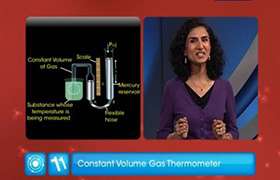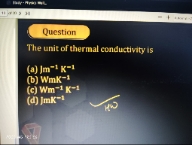CBSE Class 11-science Answered
explain?
Asked by spsberry8 | 25 Dec, 2009, 09:19: AM
For an adiabatic process,
P1V1γ = P2V2γ where γ = Cp/Cv which is always greater than 1 since Cp>Cv
V2/V1 = (P1/P2)1/γ
For an isothermal process,
P1V1 = P2V2
V2/V1 = P1/P2
Hence V2/V1 will always be greater in isothermal process than adiabatic process with same initial state.
Hence the expansion as well.
Regards,
Team,
TopperLearning.
Answered by | 25 Dec, 2009, 12:15: PM
Concept Videos
CBSE 11-science - Physics
Asked by manjushri30nov | 31 Dec, 2023, 07:48: PM
CBSE 11-science - Physics
Asked by abhishekmadheshiya708 | 22 Dec, 2023, 01:38: PM
CBSE 11-science - Physics
Asked by ankitvariya1000 | 29 Mar, 2022, 11:19: AM
CBSE 11-science - Physics
Asked by jatinsahu37 | 27 Mar, 2022, 04:45: PM
CBSE 11-science - Physics
Asked by parineetsandhu3232 | 11 Mar, 2022, 05:49: PM
CBSE 11-science - Physics
Asked by arjunsah797 | 01 Mar, 2022, 03:01: PM
CBSE 11-science - Physics
Asked by sanjanapujar80 | 12 Jun, 2021, 10:29: AM
CBSE 11-science - Physics
Asked by akpdbbhhs | 14 May, 2021, 12:51: PM
CBSE 11-science - Physics
Asked by vikranthpoluparthi1 | 04 May, 2021, 12:30: PM
CBSE 11-science - Physics
Asked by shubhamgoyal1722 | 15 Dec, 2020, 11:18: AM







